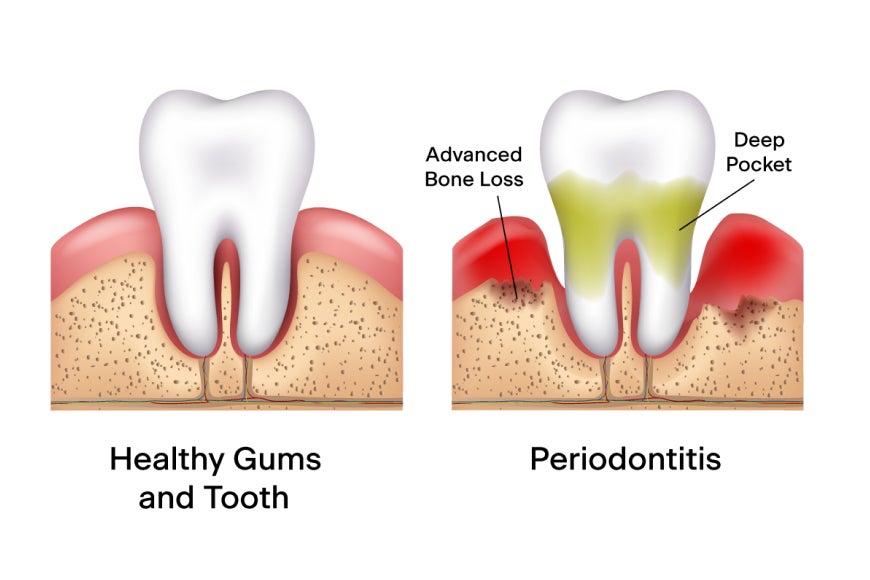Can You Get Dental Implants with Thin but Healthy Gums?
Are thin gums affecting your eligibility for implants? Explore implant options and solutions for thin but healthy gums.

Dental health is critical for overall well-being, and advancements in dental procedures like implants have made it easier to maintain a healthy smile. However, one question that often arises is whether individuals with thin but healthy gums can successfully receive dental implants. The answer isn't straightforward, but understanding the role of gum health with regard to dental implant treatment can provide valuable insights.
Introduction
Dental implants are an effective solution for replacing missing teeth, offering a permanent and natural-looking alternative to dentures and bridges. However, the success of dental implants largely depends on the health and thickness of the gums. Gum health is crucial because it supports the implant and ensures proper integration with the jawbone. As many as 47% of American adults have some form of gum disease, highlighting the importance of maintaining healthy gums for overall dental health.
Can You Get Dental Implants with Thin but Healthy Gums?
The primary concern for individuals with thin gums considering dental implants is whether the existing gum tissue can adequately support the implant. The general criteria for dental implant candidacy include sufficient bone density, healthy gum tissue, and overall good oral hygiene. While thin gums pose certain challenges, they are not necessarily a deal-breaker.
Understanding Gum Health and Thickness
Healthy gums are characterized by a firm texture, pink color, and absence of swelling or bleeding. When it comes to dental procedures, gum thickness plays a significant role. Thin gums may struggle to cover and protect the implant, increasing the risk of complications.
Healthy Gum Tissue: Essential for successful dental implants.
Periodontal Disease: Can compromise gum health and implant success.

Challenges of Thin Gums in Dental Implants
Thin gums can present several issues during and after the dental implant procedure. They may be more prone to recession, which can expose the implant and lead to failure. Additionally, thin gums may not provide enough coverage, increasing the risk of infection and other complications.
Gum Recession Treatment: May be required before implant placement.
Gum Grafting: A common solution to address thin gums.
Solutions and Treatments
Fortunately, there are several pre-implant procedures and treatments available to strengthen thin gums and improve their ability to support dental implants.
Gum Grafting: Involves transplanting tissue to the thin gum area to increase thickness.
Bone Grafting for Dental Implants: Enhances bone density to better support the implant.
Success Stories and Expert Opinions
Despite the challenges, many individuals with thin gums have successfully received dental implants. It is important to consult with a Periodontist to explore the best options for you.
Periodontist Consultation: Critical for personalized treatment
Expert Opinions: Dental professionals emphasize the importance of tailored care.

Alternatives to Dental Implants
For individuals with thin gums that choose not to pursue dental implant treatment, other solutions may be available.
Implant-Supported Dentures: Offer a secure fit without requiring extensive gum coverage.
Soft Tissue Management: Techniques to improve gum health and thickness over time.
Conclusion
In summary, while thin gums can pose challenges for dental implant procedures, they do not necessarily disqualify an individual from receiving implants. With proper assessment, pre-implant treatments, and expert guidance, many patients are able to achieve successful outcomes.
If you are considering dental implants and have concerns about your gum health, we encourage you to consult with a dental professional. Your smile deserves the best care, and individualized treatment plans can make a significant difference.
Talk to a ClearChoice Network Doctor Today
By maintaining healthy gums and exploring available treatments, you can take important steps towards a beautiful, healthy smile. Ready to improve your oral health? Schedule a free consultation with a doctor today and find out how we can help you achieve your dental goals.
Frequently Asked Questions
Can you get dental implants if you have receding gums?
Yes, it is possible to get dental implants even if you have receding gums. However, there are potential challenges that need to be addressed. Gum recession can lead to insufficient gum tissue to support the implant properly. This might require additional procedures such as gum grafting to build up the tissue before the implant can be placed. Consult with your dentist to explore viable gum recession treatments and develop a plan tailored to your needs.
What are the risks of getting dental implants with thin gums?
Getting dental implants with thin gums does come with certain risks. Thin gums may lead to implant exposure, which can compromise the stability and success of the implant. However, preventative measures like gum grafting or using specialized techniques to ensure sufficient bone and gum support can mitigate these risks.
How can you improve gum health before getting dental implants?
Improving gum health prior to getting dental implants can significantly increase the chances of success. Here are some tips to strengthen your gum tissue:
Practice good oral hygiene by brushing twice a day and flossing daily.
Regularly visit your dentist for professional cleanings and check-ups.
Consider treatments like scaling and root planing if you have existing gum disease.
Are there any alternatives to dental implants for people with thin gums?
Yes, there are alternatives to dental implants for individuals with thin gums. Some viable alternatives include:
Implant Dentures: These dentures are anchored by implants but require fewer implants than a full set of dental implants, making them a good option for those with thin gums.
Bridges: Dental bridges can replace one or more missing teeth without the need for implants.
Partial Dentures: Removable partial dentures can fill gaps left by missing teeth and require no surgical intervention.
What is the success rate of dental implants with thin gums?
The success rate of dental implants with thin gums can vary. Generally, dental implants have a high success rate of about 95%. However, thin gums can pose challenges that may slightly lower this rate. Successful osseointegration (the process where the implant fuses with the bone) is crucial, and additional treatments like bone grafting or gum grafting can help improve the success rate.
What are the costs associated with additional gum treatments before implants?
The costs associated with additional gum treatments before getting dental implants can vary based on the complexity of the procedures required. The best way to learn your exact treatment cost would be to schedule a free consultation at your local ClearChoice dental implant center.
